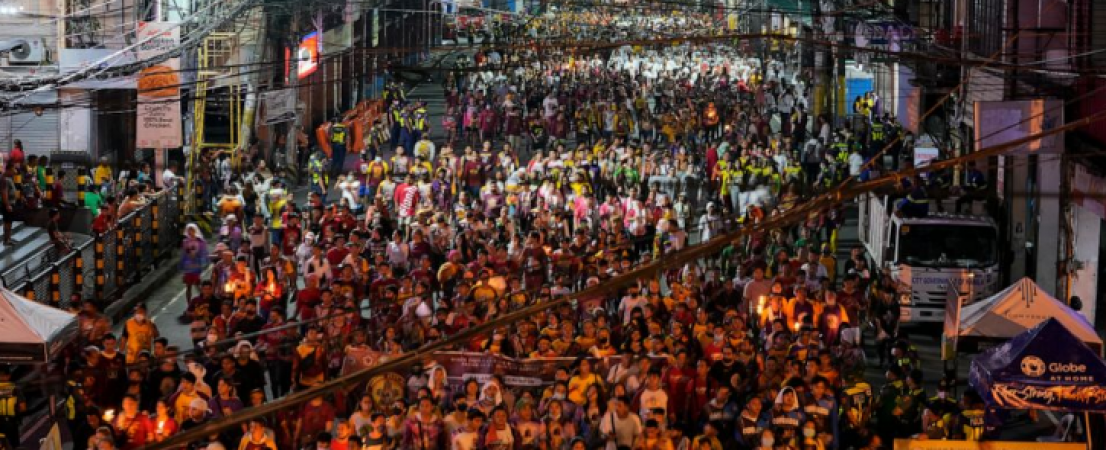
Manila: A centuries-old black statue of Jesus Christ was not paraded to prevent a large crowd amid persistent COVID-19 fears, but thousands of Catholic worshipers attended a night procession through downtown Manila early Sunday. Many were wearing protective masks and carrying candles.
The nearly 6-kilometre (3.7-mile) "Walk of Faith" procession, according to church officials, attracted more than 80,000 fervent followers, a small part of the more than a million worshipers who usually turned out to honor the pandemic. gathered in the years before. Life-size Kali Nazarene statue at one of Asia's biggest religious festivals.
When Black Nazarenes were paraded in chaotic processions from dawn to midnight in the past on a cart pulled by ropes, mainly poor, barefoot devotees in maroon shirts crowded around the slow-moving cart through Used to throw towels on the volunteers. who were wiping parts of the idol in the hope that the powers of the Nazarene would cure diseases, ensure good health and lead to a better life.
Also Read: VIDEO: President of this country urinated in his pants while standing during the national anthem
Sunday's procession from a historic park on Manila Bay to a church in the Quiapo district was quiet but intense even without the Nazarenes, with many worshipers praying and others singing and chanting "Nazarenos." Many people copied the sacred object. After midnight, the procession began, and it was over in less than three hours.
Before Sunday's procession, representatives of the church in Quiapo, where Black Nazarenes worship year-round, moved the statue to a grandstand in Rizal Park so worshipers could pray in front of it throughout the weekend until Monday, when The annual feast of the Black Nazarene is celebrated. Kissing the idol was forbidden as it was believed that doing so could spread the COVID-19 infection.
Also Read: People are dying for flour in this country, prices reach Rs 3100 per packet
Religious Nazarene processions were halted during the peak of the COVID-19 outbreak in the Philippines, one of the countries in Southeast Asia most affected by the pandemic. Even after the pandemic subsided, church officials cautiously decided not to hold a parade of Nazarenes this year. Instead, he planned religious marches as a substitute during a period of acute social and economic hardship.
To secure the largest gathering in the nation and warn followers not to gather too close for health reasons, police were on high alert and thousands of personnel were deployed.
Also Read: Israel is constructing a concrete wall to guard the nearby Gaza Strip's highways
Spanish missionaries are believed to have transported the statue of the Nazarene from Mexico to Manila in 1606 on a galleon. The ship he was in caught fire, but the burnt statue was still there. Many followers think that the statue's resilience in the face of numerous fires, earthquakes, and intense bombings during World War II is proof of its supernatural abilities.
The pageant reflects the distinctive brand of Catholicism practiced in Asia's largest Catholic country, including folk superstitions. Another strange tradition to emulate the suffering of Christ involves the crucifixion of dozens of Filipinos on Good Friday. Every year a huge crowd of devotees and tourists gather in this event.